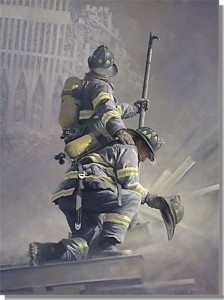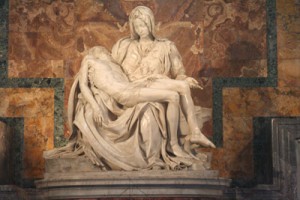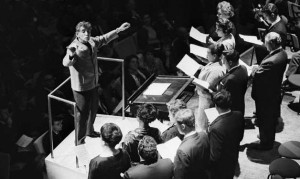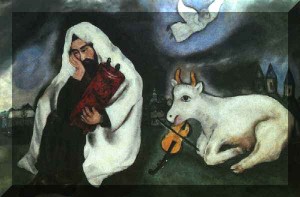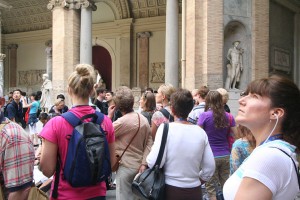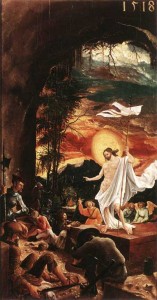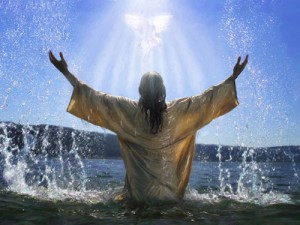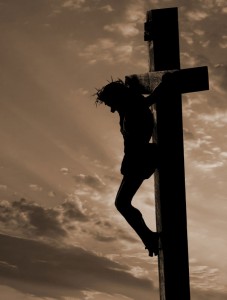Cardinal Arinze  spoke with 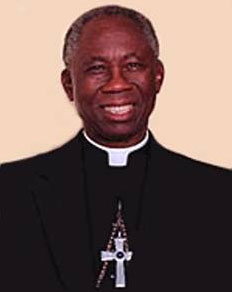 couples struggling with the challenge of infertility in Omaha on September 20, 2011.
couples struggling with the challenge of infertility in Omaha on September 20, 2011.
[powerpress]We apologize for some of the noise in the recording. Â The microphone was inadvertently attached to a file on the podium and was jostled during the talk…it’s not that bad and the talk is fantastic!
Francis Cardinal Arinze discussed the value of the marriage relationship and it’s contribution to the personal growth of the couple, it’s activity in the community and in the life of the Church.  Cardinal  Arinze goes on to talk about motherhood and fatherhood even when a couple do not have natural children of their own.  The joy of giving, as opposed to grabbing…the gift of joy.  He speaks of the example of priesthood and of St. Teresa of Calcutta (” The Smile of God”).  “Sacrificing yourself for others the sun begins to shine”.
Event sponsored by the Pro Sanctity Movement
Tags: Cardinal Arinze, catholic, catholic podcast, catholic prayer, catholic social teaching, cathollc spirituality, children, family life, Francis Cardinal Arinze, infertility, ivf, marriage
This entry was posted on Wednesday, September 21st, 2011 at 10:34 am
You can follow any responses to this entry through the RSS 2.0 feed.
Heart of Hope Part 2 – The agony of emotional suffering and opportunities for deeper union with Jesus; the reason for pastoral ministry
[powerpress = “deacon-james-keating”]
Deacon James Keating, PhD, the director of Theological Formation for the Institute for Priestly Formation, located at Creighton University, in Omaha, is making available to â€Discerning Hearts†and all who listen, his series of programs entitled “The Heart of Hopeâ€.
This extraordinarily popular series explores the work of suffering in the Christian life and how God can use it to transform the heart of the individual and the world. 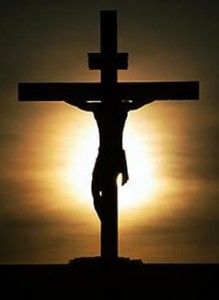
The “Heart of Hope† tackles a very tough subject…the gift of suffering in the Christian life. Deacon Keating guides us well.
For more information on the “Institute of Priestly Formation†and for other material available by Deacon Keating, just click here
Don’t forget to pickup a copy of “Communion with Christ†, it is one of the best audio sets on prayer…ever!
Check out Deacon Keating’s “Discerning Heart†page
Tags: abandonment, agony, alone, catholic, catholic podcast, catholic prayer, cathollc spirituality, creighton university, Deacon James Keating, Deacon Keating, discerning heart, hearts, institute for priestly formation, isolation, james keating, Jesus, lonliness, parish, PhD, suffering, theological formation
This entry was posted on Thursday, September 15th, 2011 at 3:38 am
You can follow any responses to this entry through the RSS 2.0 feed.
.
Prayer of Pope Benedict XVI at Ground Zero
“We ask you, in your compassion to bring healing to those who, because of their presence here that day, suffer from injuries and illness. Heal, too, the pain of still-grieving families and all who lost loved ones in this tragedy. Give them strength to continue their lives with courage and hope.
“We are mindful as well of those who suffered death, injury, and loss on the same day at the Pentagon and in Shanksville, Pennsylvania. Our hearts are one with theirs as our prayer embraces their pain and suffering.
“God of peace, bring your peace to our violent world: peace in the hearts of all men and women and peace among the nations of the Earth. Turn to your way of love those whose hearts and minds are consumed with hatred.
“God of understanding, overwhelmed by the magnitude of this tragedy, we seek your light and guidance as we confront such terrible events. Grant that those whose lives were spared may live so that the lives lost here may not have been lost in vain. Comfort and console us, strengthen us in hope, and give us the wisdom and courage to work tirelessly for a world where true peace and love reign among nations and in the hearts of all.” AMEN
Tags: 9-11, catholic, catholic podcast, catholic prayer, cathollc spirituality, ground zero, pope benedict xvi
This entry was posted on Sunday, September 11th, 2011 at 3:59 am
You can follow any responses to this entry through the RSS 2.0 feed.
DIALECTIC OF PRAYER: HUMAN CRY AND DIVINE RESPONSE
VATICAN CITY, 7 SEP 2011 (VIS) – This morning Benedict XVI travelled by helicopter
from the Apostolic Palace in Castelgandolfo to the Vatican for his weekly general audience in St. Peter’s Square.
Continuing a series of catecheses on the subject of “the school of prayer”, the Holy Father turned his attention to Psalm 3 which recounts David’s flight from Jerusalem when Absalom rose against him. “In the Psalmist’s lament”, the Pope said, “each of us may recognise those feelings of pain and bitterness, accompanied by faith in God, which, according the biblical narrative, David experienced as he fled from his city”.
In the Psalm, the king’s enemies are many and powerful, and the imbalance between David’s forces and those of his persecutors “justifies the urgency of his cry for help”. Nonetheless his adversaries “also seek to break his bond with God and to undermine the faith of their victim by insinuating that the Lord cannot intervene”.
Thus, the aggression “is not only physical, it also has a spiritual dimension” aimed at “the central core of the Psalmist’s being. This is the extreme temptation a believer suffers: the temptation of losing faith and trust in the closeness of God”, the Holy Father said.
Yet, as the Book of Wisdom says, the unrighteous are mistaken because “the Lord … is like a shield protecting those who entrust themselves to Him. He causes them to raise their heads in sign of victory. Man is no longer alone … because the Lord hears the cry of the oppressed. … This intertwining of human cry and divide response is the dialectic of prayer and the key to reading the entire history of salvation. A cry expresses a need for help and appeals to the faithfulness of the other. To cry out is an act of faith in God’s closeness and His willingness to listen. Prayer express the certainty of a divine presence which has already been experienced and believed, and which is fully manifested in the salvific response of God”.
Psalm 3 presents us “a supplication replete with faith and consolation. By praying this Psalm we share the sentiments of the Psalmist: a just but persecuted figure which would later be fulfilled in Jesus. In pain, danger and the bitterness of misunderstanding and offence, the words of this Psalm open our hearts to the comforting certainty of faith. God is always close, even in times of difficulty, problems and darkness. He listens, responds and saves.
“However”, the Pope added, “it is important to be able to recognise His presence and to accept His ways: like David during his humiliating flight from his son Absalom, like the persecuted righteous of the Book of Wisdom and, finally and fully, like the Lord Jesus on Golgotha. In the eyes of the unrighteous it appeared that God did not intervene and that His Son died, but for believers it was at that precise moment that true glory was manifested and definitive salvation achieved”.
The Pope concluded: “May the Lord give us faith, may He come in aid of our weakness and help us to pray in moments of anguish, in the painful nights of doubt and the long days of pain, abandoning ourselves trustingly to Him, our shield and our glory”.
AG/ VIS 20110907 (550)
PSALM 3 From the New Advent On-line Bible:
1 The psalm of David when he fled from the face of his sonAbsalom.
 hy, OÂ Lord, are they multiplied that afflict me? many are they who rise up against me.
hy, OÂ Lord, are they multiplied that afflict me? many are they who rise up against me.
3 Many say to mysoul: There is no salvation for him in his God.
4 But you, O Lord, are my protector, my glory, and the lifter up of my head.
5 I have cried to the Lord with my voice: and he has heard me from his holy hill.
6 I have slept and have taken my rest: and I have risen up, because the Lord has protected me.
7 I will not fear thousands of the people surrounding me: arise, O Lord; save me, O my God.
8Â For you have struck all them who are my adversaries without cause: you have broken the teeth of sinners.
9 Salvation is of the Lord: and your blessing is upon your people.
Tags: catholic, catholic podcast, catholic prayer, cathollc spirituality, pope benedict, prayer, psalms
This entry was posted on Wednesday, September 7th, 2011 at 7:30 am
You can follow any responses to this entry through the RSS 2.0 feed.
On Wednesday Pope Benedict XVI challenged the men and women of today’s
world to recover the deepest meaning of art, in its multitude of expressions, but particularly as the path of beauty which leads to God. And in doing so he also shared personal memories of how art had moved him to God with the five thousand pilgrims gathered for the general audience in the tiny village of Castel Gandolfo.
He said “On several occasions during this period, I have recalled the need for every Christian to find time for God, for prayer, amid the many occupations of our daily lives. The Lord Himself gives us many opportunities to remember Him. Today I will touch briefly on one of these channels that can bring us to God and also be of help in encountering Him: it is the path of artistic expression, part of that “path of Beauty “, of which I have spoken several times and which man today should recover in its deepest meaningâ€.
Pope Benedict continued “perhaps sometimes, before a sculpture, a painting, a few verses of a poem or a song, you have experienced deep within an intimate emotion, a sense of joy, that is, you have clearly perceived that in front of you there was not only mere matter, a piece of marble or bronze, a painted canvas, a series of letters or a combination of sounds, but something bigger, something that speaks, capable of touching the heart, of communicating a message; of elevating the soul. ”
“Works of art are the fruit of human creativity, which question the visible reality, trying to discover its deep meaning and to communicate it through the language of shapes, colours, sounds.” The work of art, in short, “is an open door on the infinite,” which “opens the eyes of the mind, of the heart.”
However, he added, “there are artistic expressions that are true paths to God, the supreme Beauty, indeed they help nurture our relationship with Him in prayer. These are works that are born of faith and express faith. One example of this is when we visit a Gothic cathedral; we are enraptured by the vertical lines that shoot up towards the sky and draw our eyes and our spirits upwards, while at the same time, we feel small, and yet eager for fullness … Or when we enter a Romanesque church: we are spontaneously invited to recollection and prayer. We feel as if the faith of generations were enclosed in these splendid buildings. Or, when we hear a piece of sacred music that vibrates the strings of our heart, our soul expands and helped to turn to God. A concert of music by Johann
Sebastian Bach, in Munich, directed by Leonard Bernstein, again comes to my mind. Afterthe last piece of music, one of the Cantate, I felt, not by reasoning, but in my heart, that what I heard had conveyed to me truth, something of the truth of the great composer’s faith and this pressed me to praise and thank the Lord and beside me was the Lutheran Bishop of Munich and spontaneously, feeling this, I said to him, you know, its true, a faith and beauty so strong and irresistibly expresses the presence and truth of God”.
Pope Benedict then turned spoke of how certain artists have touched our lives : “How many times have paintings or frescoes, the fruit of the faith of the artist, in their forms, their colours, their light, encouraged us to direct our thoughts to God and nourished in us the desire to draw from the source of all beauty. What the great artist, Marc Chagall, once
wrote remains true, that for centuries painters have dipped their paintbrush in that coloured alphabet that is the Bible. How many times, then can artistic expressions be occasions to remind us of God, to help our prayer or for the conversion of the heart! Paul Claudel, a poet, playwright, and French diplomat, in the Basilica of Notre Dame in Paris, in 1886, while he was listening to the singing of the Magnificat at Christmas Mass, felt God’s presence. He had not entered the church for reasons of faith, but to in search of arguments against Christians, and instead the grace of God worked in his heart”.
The Holy Father concluded: “I invite you to rediscover the importance of this path for prayer, for our living relationship with God. The cities and towns all over the world preserve works of art that express the faith and remind us of our relationship with God. Visiting places of art, it is not only an occasion for cultural
enrichment, but above all it can be a moment of grace, an encouragement to strengthen our relationship and our dialogue with the Lord, to stop and contemplate, in the transition from simple external reality to a deeper reality, the ray of beauty that strikes us, that almost wounds us in our inner selves and invites us to rise towards God. “
And then he greeted all English speaking pilgrims present: I am pleased to greet the English-speaking pilgrims and visitors here today, especially those from Scotland and Malta. Today we reflect on the need to draw near to God through the experience and appreciation of artistic beauty. Art is capable of making visible our need to go beyond what we see and it reveals our thirst for infinite beauty, for God. Dear friends, I invite you to be open to beauty and to allow it to move you to prayer and praise of the Lord. May Almighty God bless all of you!
Tags: art, catholic, catholic podcast, catholic prayer, cathollc spirituality, music, pope benedict xvi, prayer
This entry was posted on Thursday, September 1st, 2011 at 1:00 am
You can follow any responses to this entry through the RSS 2.0 feed.
Is Jesus Calling? A Spiritual Guide to Discerning Your Vocational Call with Fr. Paul Hoesing – episode 7: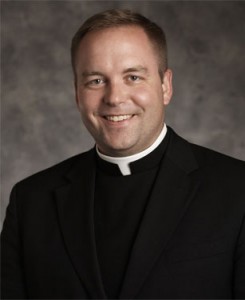 Â It’s all about relationship. Â What to do now.
 It’s all about relationship.  What to do now.
[powerpress]
1. Go to Mass, if possible, daily Mass
2. The sacrament of confession
3. Daily Prayer
4. Â Talk to a priest
5. Â Read the Gospels
6. Â Devotion to the Blessed Virgin Mary, the Mother of God
7. Â Eucharistic adoration
8. Â Live a life of virtue
9. Â Spiritual reading
10. Â Hang around good people
Based on “Is Jesus Calling You To Be A Catholic Priest: A helpful guide”, published by National Conference of Diocesan Vocation Director.
Fr. Paul Hoesing serves as the Vocation Director for the Archdiocese of Omaha, NE.
Check out “For Your Vocation.org“
Tags: catholic, catholic podcast, catholic prayer, catholic priest, cathollc spirituality, discernment, Fr, married life, Paul Hoesing, priesthood, vocation discernment
This entry was posted on Saturday, August 27th, 2011 at 10:35 pm
You can follow any responses to this entry through the RSS 2.0 feed.
 Episode 6 -Baptism: Born from Above– The child is baptized in the name of the Father, the Son, and the Holy Spirit…what does this mean?  The anointing with Sacred Chrism, the clothing with the baptismal garment, the baptismal candle…all what is the significance of these signs?  The need for discernment. The blessings of the mother, and the father, and the baptized child.
Episode 6 -Baptism: Born from Above– The child is baptized in the name of the Father, the Son, and the Holy Spirit…what does this mean?  The anointing with Sacred Chrism, the clothing with the baptismal garment, the baptismal candle…all what is the significance of these signs?  The need for discernment. The blessings of the mother, and the father, and the baptized child.
[powerpress]
Deacon James Keating, PhD, the director of Theological Formation for the Institute for Priestly Formation, located at Creighton University, in Omaha, Nebraska.
Deacon Keating takes a careful look at the Baptismal Rite and offers prayerful reflection and insight to help us live out the faith and nurture the domestic church.
From the Baptismal Rite for Children:
From the earliest times, the Church, to which the mission of preaching the Gospel and of baptizing was entrusted, has baptized not only adults but children as well. Our Lord said:
‘Unless a man is reborn in water and the Holy Spirit, he cannot enter the kingdom of
God.’ The Church has always understood these words to mean that children should not
be deprived of baptism, because they are baptized in the faith of the Church, a faith proclaimedfor them by their parents and godparents, who represent both the local Church and the whole society of saints and believers: ‘The whole Church is the mother of all and the mother of each.’ To fulfill the true meaning of the sacrament, children must later be formed in the faith in
which they have been baptized. The foundation of this formation will be the sacrament
itself that they have already received. Christian formation, which is their due, seeks to lead them gradually to learn God’s plan in Christ, so that they may ultimately accept for themselvesthe faith in which they have been baptized.
How can this be accomplished? Â What is the role of the parents, the godparents, the minister of baptism, the Church? These and other questions are reflected upon in “Baptism: Born from Above with Deacon James Keating”.
For more information on the “Institute of Priestly Formation†and for other material available by Deacon Keating, just click here
Don’t forget to pickup a copy of “Communion with Christ†, it is one of the best audio sets on prayer…ever!
Check out Deacon Keating’s “Discerning Heart†page
Tags: baptism, catholic, catholic podcast, catholic prayer, cathollc spirituality, creighton university, Deacon James Keating, Deacon Keating, institute for priestly formation, james keating
This entry was posted on Thursday, August 25th, 2011 at 5:21 pm
You can follow any responses to this entry through the RSS 2.0 feed.
 Episode 5 -Baptism: Born from Above– The renunciation of Satan on the part of parents and godparents and their profession of faith…what does this mean?  What are we called to actually do?
Episode 5 -Baptism: Born from Above– The renunciation of Satan on the part of parents and godparents and their profession of faith…what does this mean?  What are we called to actually do?
[powerpress]
Deacon James Keating, PhD, the director of Theological Formation for the Institute for Priestly Formation, located at Creighton University, in Omaha, Nebraska.
Deacon Keating takes a careful look at the Baptismal Rite and offers prayerful reflection and insight to help us live out the faith and nurture the domestic church.
From the Baptismal Rite for Children:
From the earliest times, the Church, to which the mission of preaching the Gospel and of baptizing was entrusted, has baptized not only adults but children as well. Our Lord said:
‘Unless a man is reborn in water and the Holy Spirit, he cannot enter the kingdom of
God.’ The Church has always understood these words to mean that children should not
be deprived of baptism, because they are baptized in the faith of the Church, a faith proclaimedfor them by their parents and godparents, who represent both the local Church and the whole society of saints and believers: ‘The whole Church is the mother of all and the mother of each.’ To fulfill the true meaning of the sacrament, children must later be formed in the faith in
which they have been baptized. The foundation of this formation will be the sacrament
itself that they have already received. Christian formation, which is their due, seeks to lead them gradually to learn God’s plan in Christ, so that they may ultimately accept for themselvesthe faith in which they have been baptized.
How can this be accomplished? Â What is the role of the parents, the godparents, the minister of baptism, the Church? These and other questions are reflected upon in “Baptism: Born from Above with Deacon James Keating”.
For more information on the “Institute of Priestly Formation†and for other material available by Deacon Keating, just click here
Don’t forget to pickup a copy of “Communion with Christ†, it is one of the best audio sets on prayer…ever!
Check out Deacon Keating’s “Discerning Heart†page
Tags: baptism, catholic, catholic podcast, catholic prayer, cathollc spirituality, creighton university, Deacon James Keating, Deacon Keating, institute for priestly formation
This entry was posted on Thursday, August 18th, 2011 at 10:52 am
You can follow any responses to this entry through the RSS 2.0 feed.
Word for Word [Edge] from Life Teen on Vimeo.
Tags: catholic, catholic podcast, catholic prayer, cathollc spirituality, life teen, the mass
This entry was posted on Thursday, August 18th, 2011 at 10:36 am
You can follow any responses to this entry through the RSS 2.0 feed.
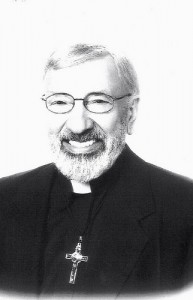 Msgr. Esseff discusses the Sacrament of Reconciliation. What is a “core wound”? What prevents us from being Christ in the world today? Who do we encounter in the confessional? What is the role of the Cross in the confessional? What does Jesus see from the Cross? What is the role of the Holy Spirit in revealing the “core wound”?
Msgr. Esseff discusses the Sacrament of Reconciliation. What is a “core wound”? What prevents us from being Christ in the world today? Who do we encounter in the confessional? What is the role of the Cross in the confessional? What does Jesus see from the Cross? What is the role of the Holy Spirit in revealing the “core wound”?
visit Msgr. Esseff’s website “Building A Kingdom of Love”
Tags: catholic, catholic podcast, catholic prayer, cathollc spirituality, sacrament of reconciliation, the confessional
This entry was posted on Tuesday, August 16th, 2011 at 11:12 am
You can follow any responses to this entry through the RSS 2.0 feed.
 Episode 4 -Baptism: Born from Above– The adopted child reality and the Sonship of Jesus Christ.  The symbol of water and it’s importance in the rite and in our spiritual lives. The solemn prayer of the celebrant, which, by invoking God and recalling his plan of salvation, blesses the water of baptism or makes reference to its earlier blessing.
Episode 4 -Baptism: Born from Above– The adopted child reality and the Sonship of Jesus Christ.  The symbol of water and it’s importance in the rite and in our spiritual lives. The solemn prayer of the celebrant, which, by invoking God and recalling his plan of salvation, blesses the water of baptism or makes reference to its earlier blessing.
[powerpress]
Deacon James Keating, PhD, the director of Theological Formation for the Institute for Priestly Formation, located at Creighton University, in Omaha, Nebraska.
Deacon Keating takes a careful look at the Baptismal Rite and offers prayerful reflection and insight to help us live out the faith and nurture the domestic church.
From the Baptismal Rite for Children:
From the earliest times, the Church, to which the mission of preaching the Gospel and of baptizing was entrusted, has baptized not only adults but children as well. Our Lord said:
‘Unless a man is reborn in water and the Holy Spirit, he cannot enter the kingdom of
God.’ The Church has always understood these words to mean that children should not
be deprived of baptism, because they are baptized in the faith of the Church, a faith proclaimedfor them by their parents and godparents, who represent both the local Church and the whole society of saints and believers: ‘The whole Church is the mother of all and the mother of each.’ To fulfill the true meaning of the sacrament, children must later be formed in the faith in
which they have been baptized. The foundation of this formation will be the sacrament
itself that they have already received. Christian formation, which is their due, seeks to lead them gradually to learn God’s plan in Christ, so that they may ultimately accept for themselvesthe faith in which they have been baptized.
How can this be accomplished? Â What is the role of the parents, the godparents, the minister of baptism, the Church? These and other questions are reflected upon in “Baptism: Born from Above with Deacon James Keating”.
For more information on the “Institute of Priestly Formation†and for other material available by Deacon Keating, just click here
Don’t forget to pickup a copy of “Communion with Christ†, it is one of the best audio sets on prayer…ever!
Check out Deacon Keating’s “Discerning Heart†page
Tags: baptism, catholic, catholic podcast, catholic prayer, cathollc spirituality, creighton university, Deacon James Keating, Deacon Keating, institute for priestly formation, Sonship of Jesus Christ
This entry was posted on Friday, August 12th, 2011 at 10:42 am
You can follow any responses to this entry through the RSS 2.0 feed.
Tags: catholic, catholic podcast, catholic prayer, cathollc spirituality, pope paul vi
This entry was posted on Saturday, August 6th, 2011 at 11:09 am
You can follow any responses to this entry through the RSS 2.0 feed.
 Episode 3 -Baptism: Born from Above– The importance of the community of faith.  Also the relevance and effect of the prayers of exorcism and anointing.
Episode 3 -Baptism: Born from Above– The importance of the community of faith.  Also the relevance and effect of the prayers of exorcism and anointing.
[powerpress]
Deacon James Keating, PhD, the director of Theological Formation for the Institute for Priestly Formation, located at Creighton University, in Omaha, Nebraska.
Deacon Keating takes a careful look at the Baptismal Rite and offers prayerful reflection and insight to help us live out the faith and nurture the domestic church.
From the Baptismal Rite for Children:
From the earliest times, the Church, to which the mission of preaching the Gospel and of baptizing was entrusted, has baptized not only adults but children as well. Our Lord said:
‘Unless a man is reborn in water and the Holy Spirit, he cannot enter the kingdom of
God.’ The Church has always understood these words to mean that children should not
be deprived of baptism, because they are baptized in the faith of the Church, a faith proclaimedfor them by their parents and godparents, who represent both the local Church and the whole society of saints and believers: ‘The whole Church is the mother of all and the mother of each.’ To fulfill the true meaning of the sacrament, children must later be formed in the faith in
which they have been baptized. The foundation of this formation will be the sacrament
itself that they have already received. Christian formation, which is their due, seeks to lead them gradually to learn God’s plan in Christ, so that they may ultimately accept for themselvesthe faith in which they have been baptized.
How can this be accomplished? Â What is the role of the parents, the godparents, the minister of baptism, the Church? These and other questions are reflected upon in “Baptism: Born from Above with Deacon James Keating”.
For more information on the “Institute of Priestly Formation†and for other material available by Deacon Keating, just click here
Don’t forget to pickup a copy of “Communion with Christ†, it is one of the best audio sets on prayer…ever!
Check out Deacon Keating’s “Discerning Heart†page
Tags: baptism, catholic, catholic podcast, catholic prayer, cathollc spirituality, creighton university, Deacon James Keating, Deacon Keating, institute for priestly formation, james keating
This entry was posted on Thursday, August 4th, 2011 at 3:27 pm
You can follow any responses to this entry through the RSS 2.0 feed.
August 2011 [powerpress = devotionals-prayers]
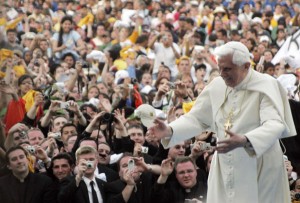 General Intention:Â That the World Youth Day taking place in Madrid may encourage all the young people of the world to root and found their lives in Christ.
General Intention:Â That the World Youth Day taking place in Madrid may encourage all the young people of the world to root and found their lives in Christ.
Missionary Intention:Â That Christians of the West, docile to the action of the Holy Spirit, may re-encounter the freshness and enthusiasm of their faith.
Tags: catholic, catholic podcast, catholic prayer, cathollc spirituality, holy father intentions, pope benedict xvi, prayer
This entry was posted on Tuesday, August 2nd, 2011 at 7:38 am
You can follow any responses to this entry through the RSS 2.0 feed.
 Episode 2 -Baptism: Born from Above– The importance of the name we are given at baptism.  The role and significance of godparents.
Episode 2 -Baptism: Born from Above– The importance of the name we are given at baptism.  The role and significance of godparents.
[powerpress]
Deacon James Keating, PhD, the director of Theological Formation for the Institute for Priestly Formation, located at Creighton University, in Omaha, Nebraska.
Deacon Keating takes a careful look at the Baptismal Rite and offers prayerful reflection and insight to help us live out the faith and nurture the domestic church.
From the Baptismal Rite for Children:
From the earliest times, the Church, to which the mission of preaching the Gospel and of baptizing was entrusted, has baptized not only adults but children as well. Our Lord said:
‘Unless a man is reborn in water and the Holy Spirit, he cannot enter the kingdom of
God.’ The Church has always understood these words to mean that children should not
be deprived of baptism, because they are baptized in the faith of the Church, a faith proclaimedfor them by their parents and godparents, who represent both the local Church and the whole society of saints and believers: ‘The whole Church is the mother of all and the mother of each.’ To fulfill the true meaning of the sacrament, children must later be formed in the faith in
which they have been baptized. The foundation of this formation will be the sacrament
itself that they have already received. Christian formation, which is their due, seeks to lead them gradually to learn God’s plan in Christ, so that they may ultimately accept for themselvesthe faith in which they have been baptized.
How can this be accomplished? Â What is the role of the parents, the godparents, the minister of baptism, the Church? These and other questions are reflected upon in “Baptism: Born from Above with Deacon James Keating”.
For more information on the “Institute of Priestly Formation†and for other material available by Deacon Keating, just click here
Don’t forget to pickup a copy of “Communion with Christ†, it is one of the best audio sets on prayer…ever!
Check out Deacon Keating’s “Discerning Heart†page
Tags: baptism, baptismal rite, catholic, catholic podcast, catholic prayer, cathollc spirituality, creighton university, Deacon James Keating, Deacon Keating, godparents, institute of priestly formation
This entry was posted on Sunday, July 31st, 2011 at 3:41 pm
You can follow any responses to this entry through the RSS 2.0 feed.




